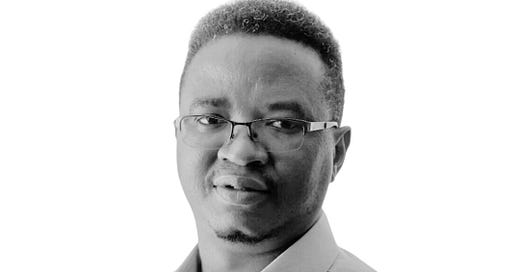Welcome to “Global Witness, Globally Reimagined.” You get a glimpse here of the kind of work that I do both at Church Mission Society and Missio Africanus where I help students of all levels (from unaccredited courses to PhD) explore the theological (and missiological) implications of the rise of World Christianity. In the newsletter, I focus on the subject of global witness in the twenty-first-century context. Every second Tuesday, I share a thought that has spoken to me, one or two resources that I trust will be helpful to you, and three exciting quotes about mission to give you something to think about as you go through your day. I pray one of these will energise you.
world.
1. Resources I am Enjoying
Podcast:
Last month, I had a chance to record a conversation with my friends, Dwight Zscheile and Terry Elton, of Luther Seminary for their renowned podcast, PIVOT. Of course, this was special for me because Luther Seminary is home. It was quite a a good feeling hanging out with old friends. We had a wide-ranging chat that allowed me to try to articulate one or two things that have been on mind about the work of sharing the good news in the world, especially among Westerners.
I find their description of this episode on their platforms quite intriguing.
What if everything you think you know about how to evangelize is about to change? Dr. Harvey Kwiyani, a Malawian missiologist, shares how African Christians are successfully reaching secular Western societies in ways that traditional Western churches haven't. Discover why young people in the UK now associate Christianity more with African and Asian believers than with traditional Western churches. Learn how African approaches to prayer, spiritual transformation, and community engagement are bringing new life to Western Christianity. In this episode, you'll learn:
Why spiritual practices matter more than programs
How African churches are growing rapidly in secular contexts
What effective evangelism looks like in a post-colonial world
Why prayer and spiritual transformation are key to reaching others
How to move beyond outdated colonial patterns of mission
Dr. Kwiyani directs the Centre for Global Witness and Human Migration and is the author of the forthcoming book "Decolonizing Mission." His insights will challenge everything you thought you knew about sharing faith in today's world.
2. Quotes I am Pondering
The African Church is a church that has learned to define her mission and existence within the dialectic of Africa’s history, not as a mission of self-righteous dispensation of God’s judgment … but as a mission of presence, of being-at-home in and with Africa — one of learning to listen great deal, and perhaps offer some salvation in the long run. It is a Church that has learned to suspect the politics of racial, tribal, and national identity. It is a Church that "keep[s] moving on- searching for balance," for a new Christian identity, for a way of being church beyond a Western, African, tribal, or national identity. — Katongole, Emmanuel M. A Future for Africa: Critical Essays in Christian Social Imagination. Eugene, OR: Wipf and Stock Publishers, 2017, 205.
One has heard talks like: what should the church do for the people of Soweto. The impression created in stating things this way is that the church does not live in Soweto since it has to move in from outside in order to minister to people who are other than itself. Does the church not live with the people of Soweto? Has the church deserted the people of Soweto so that it has to reach them from outside? — Manas Buthelezi in Elina Hankela, “The Church Must Become the People of Soweto: Manas Buthelezi’s Existential-Christocentric Understanding of the Church”
On a broad level, decolonization is about change: it is about responding to changes that are taking place well beyond the classroom — and also about changes that should be taking place. Decolonization is about changing how people think, talk, and act through a radical engagement with a plurality of voices and perspectives that have been historically marginalized and silenced. Thus, decolonization is not the same as diversifying. The aim for diversity is to accommodate (‘making space’ for) ‘alternatives’ and differences within an existing scheme which largely remains unchanged. Decolonization is not about ‘finding space’ at the table: it is about changing the room. — Malory Nye, “Decolonizing the Study of Religion.” Open Library of Humanities, 5(1): 43, pp. 1–45. DOI: https://doi.org/10.16995/olh.421.
Keep reading with a 7-day free trial
Subscribe to Global Witness, Globally Reimagined. to keep reading this post and get 7 days of free access to the full post archives.



